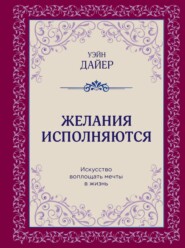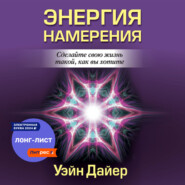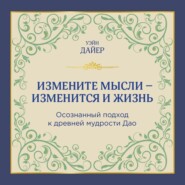По всем вопросам обращайтесь на: info@litportal.ru
(©) 2003-2025.
✖
Wisdom of The Ages: 60 Days to Enlightenment
Автор
Год написания книги
2019
Настройки чтения
Размер шрифта
Высота строк
Поля
Cicero was once called the father of his country. He was a brilliant orator, lawyer, statesman, writer, poet, critic, and philosopher who lived in the century before the birth of Christ and was momentously involved in all the conflicts between Pompey, Caesar, Brutus, and many of the other historical characters and events that make up ancient Roman history. He had a brilliant and long political career and was an established writer whose work was considered the most influential of its time. In those days, however, dissidents were not treated kindly. He was executed in 43 B.C., his head and hands displayed on the speaker’s platform at the Forum in Rome.
In one of his most memorable treatises, Cicero outlined the six mistakes of man as he saw them evidenced in ancient Rome. Twenty centuries later I repeat them here, with a brief commentary. We still can learn from our ancestors of antiquity, and I trust my corroboration of Cicero’s six mistakes will not lead to my head and hands being displayed at our national speakers forum!
Mistake #1: The illusion that personal gain is made up of crushing others. This is a problem that unfortunately is still with us today. Many people feel they are able to elevate themselves in importance by finding fault with others. I recently watched an internationally successful motivational speaker being interviewed on television. His approach was, “I am better than everyone else, no one else can provide the tools for living that I can. Don’t listen to those who are only providing a pep talk, they are all inferior.” I couldn’t help but think of Cicero’s number one mistake.
There are two ways to have the tallest building in town. One way is to go around crushing everyone else’s buildings, but this method seldom works for long because those having their buildings razed will eventually come back to haunt the crusher. The second way is to work on your own building and watch it grow. And so it is in politics, business, and our own individual lives.
Mistake #2: The tendency to worry about things that cannot be changed or corrected. Apparently people in the ancient world spent their energies worrying about things they had no control over, and little has changed since. One of my teachers put it to me quite succinctly. He said, “First it makes no sense to worry about the things you have no control over, because if you have no control over them, it makes no sense to worry about them. Second, it makes no sense to worry about the things you do have control over, because if you have control, it makes no sense to worry.” And there goes everything that it is possible to worry about. Either you have control or you don’t, and either way, worry is a huge mistake.
Mistake #3: Insisting that a thing is impossible because we cannot accomplish it. Many of us are still afflicted with this penchant for pessimism. Too often we jump to the conclusion that something is impossible simply because we cannot see the solution. I have heard many people tell me that angels, reincarnation, soul travel, communication with the deceased, travel to distant galaxies, genetic surgery, time machines, travel at the speed of light, miraculous spontaneous healings, and so on are all impossibilities, simply because they cannot conceive of such ideas.
I wonder how many of Cicero’s contemporaries could foresee telephones, fax machines, computers, automobiles, airplanes, missiles, electricity, running water, remote controls, walking on the moon, and so many of the things we take for granted today. A good motto is, “No one knows enough to be a pessimist!” What we can’t fathom today will be the accepted reality of those who reside here two thousand years into the future.
Mistake #4: Refusing to set aside trivial preferences. So many of us major in minor subjects as our way of life. We allow our precious life energies to be spent on worry about what others think of us, petty concerns about appearance, or what labels we are wearing. We consume our lives in anguish over squabbles with family or coworkers and fill our conversation with drapery talk. Ego becomes the driving force of our lives with our self-importance persistently taking center stage.
We see hunger and starvation on our planet, but become impatient when we must wait five extra minutes for a table in a restaurant, where half the food will be discarded as garbage. We hear about children maimed and killed by guns and gunmen by the thousands, yet we accept it as a condition that we can do nothing about. In our own personal lives, too many of us believe that we are unable to make a difference on the larger issues, so we immerse ourselves in our game of ego-sponsored trivial pursuit.
Mistake #5: Neglecting development and refinement of the mind, and not acquiring the habit of reading and study. It seems that when we finish our formal schooling, we have completed our development of the mind. We have adopted the credo of reading and studying for the purpose of taking the examination and earning our merit badge in the form of a diploma or an advanced degree. Once the certificate is in hand, the need to study and refine the mind is terminated. Cicero must have noticed this same tendency among his fellow Roman citizens and warned them that it could be a prelude to the downfall of their empire. And so it came to pass.
Our lives are greatly enriched when we immerse ourselves in literature and spiritual writing, not because we are going to be tested, but purely for the sake of personal enrichment. You will find that daily reading and study provide you with a deeper and richer experience of life in all ways. This is particularly gratifying when you know that you are doing it out of choice rather than as an assignment.
Mistake #6: Attempting to compel others to believe and live as we do. Obviously we are still guilty of this sixth mistake. Too often we feel victimized by those who are imposing on us their views of what we should be doing and how we should be living. The result is a high state of tension and resentment. No one wants to be told how to live or what to do. One of the specific traits of highly functioning people is that they have no desire or investment in controlling other people. We need to remind ourselves of this truth, and take the advice of Voltaire in his last line of Candide, “Learn to cultivate your own garden.”
If others want to grow cabbage and you choose to grow corn, then so be it. Yet there is this propensity to peer into the lives of others and insist that they believe and care in the same way as we do. It is a common mistake of families to impose their will on everyone else in the unit. It is also a common mistake of government officials who are determining what is best for everyone. If Cicero’s six mistakes are an unwelcome part of your life, consider the following six suggestions:
Put your attention on your own life and how to improve it. Catch yourself when you are engaged in the habit of verbally crushing others, and stop instantly. The more you become aware of tearing down the buildings of others, the sooner you will shift to constructing your own tall building.
Ask yourself as you experience worry, “Can I do anything about this?” If it is out of your control, then let it go. If there is anything you can do, then shift gears and work on that strategy. These two questions will get you out of the worry habit.
Any time you confront a problem that you feel is impossible to solve, remind yourself that this is nothing more than a solution waiting for the right response. If you can’t see the solution, begin the process of investigating who can. There is always someone who can see it from a possibility rather than an impossibility perspective. Remove “impossible” from your vocabulary entirely.
Give yourself assignments to work on what you consider the most significant issues facing all of us. Give up some of your self-indulgent activities in favor of these greater tasks, and remind yourself that in some small way your contribution to the resolution of major social problems is making an impact.
Give yourself time every day to read spiritual books, or listen to tapes in your spare time, maybe while driving. Make a habit of attending self-improvement seminars or lectures in your community on all sorts of mind-refining subjects.
Cultivate your own garden and let go of your tendency to examine and judge how others cultivate theirs. Catch yourself in moments of gossip about how others ought to be living and rid yourself of thoughts about how they should be doing it this way, or how they have no right to live and think as they do. Stay busy and involved in your own life projects and pursuits and you will be far too busy to care, much less compel others to believe and live as you do.
From ancient Rome Cicero, the great statesman, orator, writer, and philosopher gives us all a lesson in living. Don’t make these same mistakes that mankind has been making throughout the centuries. Instead, vow to eliminate them from your life one day at a time.
BEING CHILDLIKE (#ulink_f0b4b35a-0ec6-5f19-ad74-ea0e9a4b3391)
Except ye be converted and become as little
children, ye shall not enter into the Kingdom
of Heaven.
JESUS OF NAZARETH
(C. 6 B.C.–A.D. 30)
Jesus Christ is one of the world’s major religious figures, regarded by Christians as the Messiah predicted by the Old Testament prophets.
Recently, while preparing to give a lecture in a town far from home, I had the strange experience of looking directly into a wall mirror while sitting at a desk. The entire wall was one gigantic mirror, and every time I looked up, there was this body looking back at me while I was writing in a notepad. Finally I just stopped and stared back. I couldn’t grasp the fact that this was actually me reflected in the mirror. I remember saying to myself, “That’s an old man who is renting my face.”
As I stared back I thought of the invisible being living inside each of us. This being is without boundaries or form, thus no beginning or end. This is the silent invisible witness that is ageless and unchanging. This is the eternal child inside each of us. It is as ageless children that we become synonymous with heaven, which represents that eternity where forms and boundaries, beginning and ends, ups and downs are all meaningless.
Heaven is not a place with borders, perimeters, edges, and precincts. Rather, it represents that which transcends demarcations. It is the same as that little child Jesus speaks of in this telling observation. In there, always with us, never aging, yet watching, always watching. Noticing the drooping of the eyelids, the wrinkling of the skin, the silvering of the hair. Indeed, it is an old man who is renting my face these days!
The ageless child in me, my eternal unchanging observer, knows nothing of judgment and hatred. There is nothing to judge, no one to hate. Why? Because it doesn’t see appearances, it only knows how to look with love on everything and everyone. It is what I call the absolute “allower.” It simply allows everything to be as it is and only notices the unfolding of God in everyone it encounters. Being without shape, size, color, or personality, this ageless child inside fails to notice such trivial distinctions. Not living on either side of any manmade border, it cannot indulge in ethnic or cultural identification, and thus warfare over these artificial terminus points is impossible. Consequently that invisible ageless child is always at peace, just witnessing, just observing, but most important, just allowing.
Recently I had the experience of running early one morning and feeling so exhilarated that I hurdled over a three-and-a-half-foot fence as I came back to the hotel at the completion of my run. My wife, who was observing me, let out a scream and said to me, “You can’t do that! You don’t jump over fences when you’re fifty-six years old. You could kill yourself.” My immediate response to her was “Oh, I forgot.” That invisible, ageless me who is my eternal observer forgot for an instant that it was living in a body that has been here for over half a century!
To me, this passage of Jesus’ from the New Testament speaks to the process of forgetting about our bodies as our primary identity—forgetting about our ethnic identity, our spoken language, our cultural label, the shape of our eyes, or what side of the border we grew up on, then making the conversion to become as little children, who are impervious to such compartmentalizing. Jesus was not saying we should be childish and become immature, undisciplined, and uneducated. Instead he was referring to being childlike, which is non judgmental, loving, accepting, and incapable of placing labels on anyone or anything.
When we are able to be as little children we realize that in every adult there is a child who desperately wants to be known. It is the child who is full and the adult who is usually empty. The fullness of the child is evident in peace, love, non judgment, and allowing. The emptiness of the adult reveals itself in fear, anxiety, prejudgment, and fighting. Enlightenment can be seen as a process of remembering that in the heart of a little child there is purity, and it is this pure divine love and acceptance that is the ticket to the kingdom of heaven. Make it one of your goals in life to be more childlike in everything you do.
The quality that we see in geniuses is equivalent to the inquisitiveness of children. Geniuses and children share a willingness to explore without thoughts of failure or worries about criticism. I think the key word in this passage of Jesus’ is “converted.” We are being told to become something that is perfect, kind, loving, and above all eternal. It resides in each of us, and it cannot age or die. The gentle, silent witness is what we want to convert to. That naive but imaginative mystic who is naturally spiritual is the child we want to convert to. When we do, we become childlike and leave behind our childish adult ways, which are the ways that prevent us from entering the eternal kingdom of heaven.
That kingdom is available to you here now on earth, as it is in heaven. All you have to do is make that conversion. To do so:
Spend as much time as you can manage observing little children. As you do, recall the child in you who would love to play with them. The ancient thinker Heraclitus once said, “Man is most nearly himself when he achieves the seriousness of a child at play.” Be more childlike, playful, loving, and inquisitive as you make your conversion to the kingdom of heaven.
When you find yourself acting serious and stodgy, remind yourself of the invisible observer inside you that is noticing your somber side. Is that observer grim as well? You’ll quickly see that your childlike witness cannot be at all like what it is witnessing. Then vow to make the immediate conversion.
Make the decision that “I am never going to let an old person inhabit my body.” Your body may indeed be rented by an aging being, but that eternal, invisible observer who is noticing it all will stay childlike, innocent, and ready to enter the kingdom of heaven at the appointed time with such an attitude firmly in place.
DIVINITY (#ulink_44eeac19-5902-5485-969d-c5b8af7b67fe)
You are a distinct portion of the essence of God in yourself. Why, then, are you ignorant of your noble birth? Why do you not consider whence you came? Why do you not remember when you are eating, who you are who eat; and whom you feed: do you not know that it is the divine you feed; the divine you exercise? You carry a God about with you.
Men are disturbed not by things that happen,
but by their opinions of the things that happen.
EPICTETUS
(55–135)
Epictetus, an emancipated slave, was a Greek Stoic philosopher. No written works survive, but his pupil Arrian preserved his essential doctrines in a manual.
When I was training in the field of counseling psychology many years ago, Epictetus was a source of inspiration to me. His name surfaced repeatedly in the study of how the mind impacts our emotions and our behavior, and he was consistently referenced in the literature on rational emotive therapy. I am still impressed by the wisdom of this man who was born a slave in the first century after the Crucifixion, became a freedman in A.D. 90, and was expelled from Rome by the despotic emperor whose tyrannical rule Epictetus criticized. Years later I dug into the primary works of this Stoic philosopher, read his Discourses, and learned more about his philosophy.
The two selections I have cited here are valuable spiritual and philosophical insights that are almost two thousand years old. I have included them in this book because I believe they can enrich your life as they have mine.
In the longer selection, which begins, “You are a distinct portion of the essence of God,” Epictetus reminds us that we often forget that we contain the divine spark, a “part of God.” This powerful idea is so difficult to grasp, yet Epictetus insists, from a background of slavery, that it is simply the truth. Imagine being fully aware that you carry God about with you.
If God is everywhere, then there is no place that God is not. And this includes you. Once you connect to this understanding, you regain the power of your very source. Rather than seeing yourself as separate from the miraculous power of God, you claim your divinity and reclaim all the potency that God is. When you are eating you are ingesting God and replenishing God. When you sleep you breathe in God and allow God to rest. When you exercise, you move about on God and strengthen God at the same time.















